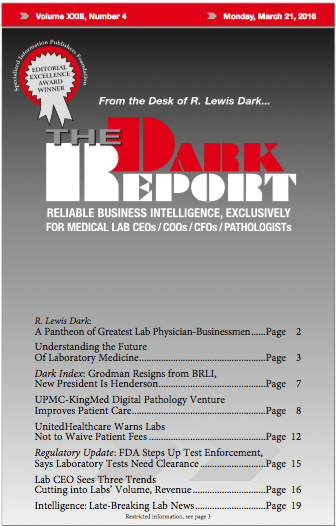CEO SUMMARY: UnitedHealthcare directly tackled the issue of out-of-network labs waiving or capping copayments, coinsurance and deductibles that are to be paid by patients. In a network bulletin this month, UHC said that such arrangements may violate federal law and could lead to state insurance department investigations into false claims. In the same bulletin to …
UnitedHealthcare Warns Labs Not to Waive Patient Fees Read More »
To access this post, you must purchase The Dark Report.


